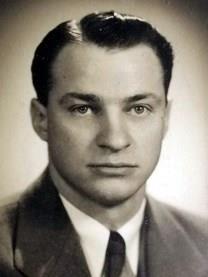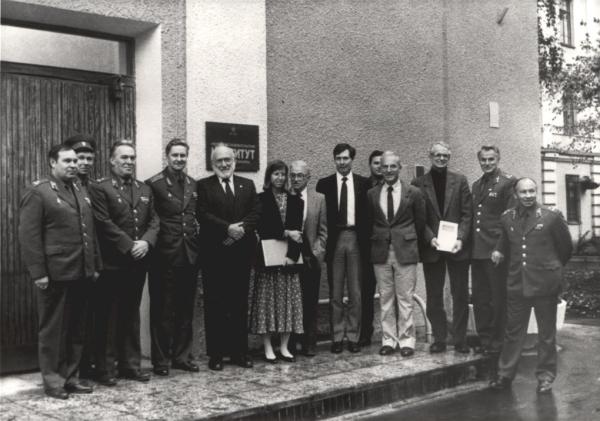Remembrances: Alexis Shelokov (1919–2016)

Alexis Shelokov
Alexis Shelokov, who studied the polio virus at the NIH in the 1950s and was a powerful scientific force in what would become the famed NIAID Laboratory of Infectious Diseases in Building 7, died on December 16, 2016, in Dallas, Texas. He had a prolific scientific career that took him around the world.
Born in Harbin, China, to Russian parents, he witnessed the immediate years following the Russian revolution followed by the establishment of the Soviet Union, the Japanese invasion of Manchuria, and World War II. Shelokov first visited the United States in the 1930s for college, ultimately earning a medical degree from Stanford Medical School. He interned at the Haynes Memorial Hospital in Boston in the 1940s during a series of devastating polio outbreaks. He also worked at the Climatic Research Laboratory, part of the U.S. Army Quartermaster Corps, in Lawrence, Massachusetts.
He arrived at the NIH in 1950, joining the newly established National Microbiological Institute, a precursor to NIAID. He brought some of the first tissue-culture techniques to NIH, enabling Robert Huebner and others to grow viruses in culture for the first time, which all greatly aided the creation of a polio vaccine. Shelokov then moved to Panama by 1960 to set up the Middle America Research Institute as part of the US Public Health Service.

Alexis Shelokov is 7th from the left in this photo of the Committee on International Security and Arms Control (CISAC) delegation in Moscow, circa 1991. You likely recognize others. See a high-res version and the NLM profile page on Joshua Lederberg for more details.
Shelokov came to settle in Texas, where he was a founding faculty member of the University of Texas at San Antonio Medical School. He also was associated with Johns Hopkins University School of Public Health, the World Health Organization, the Salk Institute, the U.S. Army Medical Research Institute of Infectious Diseases at Fort Detrick, and USAID, and he was part of the U.S. delegation sent to investigate the 1979 anthrax outbreak in the Soviet Union.
Shelokov is predeceased by his wife Paula and his son Alexis (who died in 2009 in a biking accident and whose death was confused by many as that of his father’s). The Office of NIH History conducted a 2005 oral history. Parts contain graphic accounts of a tumultuous period for China, Japan, and Russia, including Shelokov’s father’s alleged execution at the hands of the Soviets, as well as some contentious passages about his time spent at the NIH and elsewhere. While an informative and important archive, I must note that the oral history reflects solely Shelokov’s views and remembrances.
Related Blog Posts
This page was last updated on Wednesday, July 5, 2023
